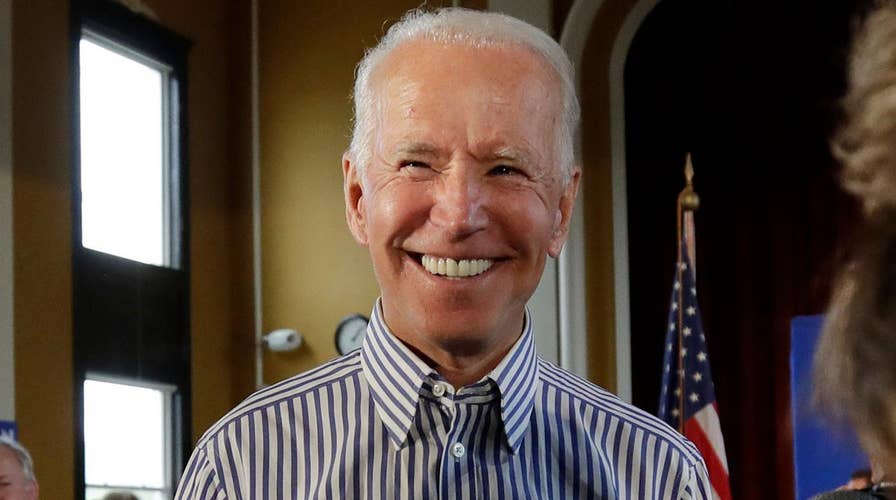Biden's campaign says they used the 'Green New Deal' as a frame work for his climate change policy
Joe Biden's plan is under fire for allegedly plagiarizing his climate change policy; Garrett Tenney reports.
Since the February release of controversial Democratic Socialist Rep. Alexandria Ocasio-Cortez, D-N.Y., and Sen. Bernie Sanders', I-Vt., Green New Deal, many 2020 presidential candidates have released their own proposals to tackle the issue of climate change.
The original Green New Deal has been supported by many candidates, including Sen. Kirsten Gillibrand, D-N.Y., Sen. Kamala Harris, D-Calif., and former Rep. Beto O’Rourke, D-Texas. It has been hailed by the left as a framework for dramatically cutting the United States’ dependence on fossil fuels -- amid a recent report warning of the economic costs climate change would cause in coming years.
WHAT IS THE GREEN NEW DEAL? A LOOK AT THE ECONOMIC AND CLIMATE CONCEPT PUSHED BY PROGRESSIVES
But conservatives have slammed the Green New Deal itself, which could cost as much as $93 trillion, or approximately $600,000 per household, according to a new study co-authored by the former director of the nonpartisan Congressional Budget Office, as an unworkable and enormously expensive scheme.
GREEN NEW DEAL ARCHITECT SAYS CLIMATE CHANGE CAN LEAD TO '25 HOLOCAUSTS'
Which begs the question -- just where do those Democrats with dreams of 1600 Pennsylvania Avenue stand on the issue? Do they support the controversial Green New Deal, and what are their own climate platforms?
Here’s what some have come up with so far…
Former Vice President Joe Biden
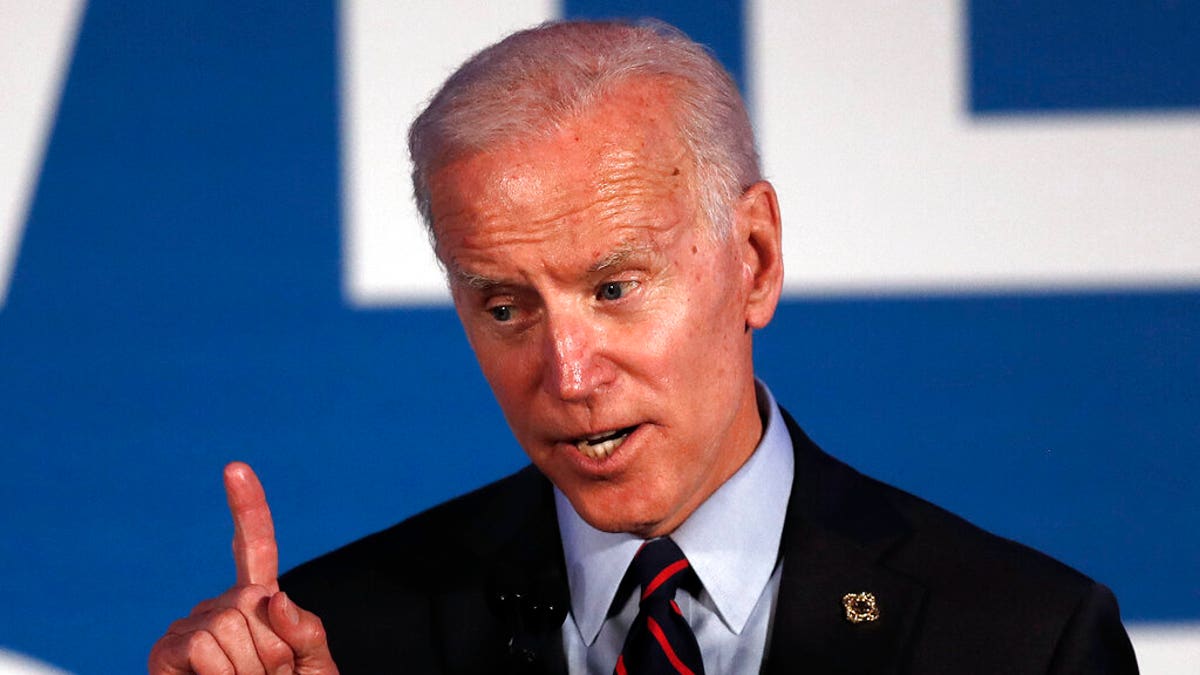
Democratic presidential candidate former Vice President Joe Biden speaks during the I Will Vote Fundraising Gala Thursday, June 6, 2019, in Atlanta. (AP Photo/John Bazemore)
The 22-page outline released by former Vice President Biden proposes reaching net-zero carbon emissions and achieving 100 percent clean energy by 2050. It calls for an investment of $1.7 trillion of federal funds over the next 10 years, plus private-sector and state and local investments adding up to more than $5 trillion dollars. The money would be paid partially by undoing President Trump’s tax cuts.
Biden’s plan refers to Ocasio-Cortez’s Green New Deal, after facing criticism from Democratic presidential rivals about his commitment to environmental protection. Biden has repeatedly insisted his stance is not moderate. In a statement, he pledged to “not only recommit the United States to the Paris Agreement on climate change,” but to “go much further.”
Former President Barack Obama had pledged the U.S. would lower its emissions 26 to 28 percent below 2005 levels by 2025.
Biden would design “environmental justice” programs to help the poor and minorities who would face disproportionate economic harm from pollution. Biden also promised to provide retraining and new economic opportunities for coal, oil, gas, and other industrial workers displaced by the decline of the fossil fuel industry.
His most aggressive initiative in the plan is the call to compel other countries—particularly China—to reduce emissions. Biden would aim to combine climate change policy with trade policy using the imposition of “carbon tariffs” on goods imported from heavily polluting economies.
Hours after the rollout, many noted the similarities between Biden’s plan and the plans of other candidates. Republicans reacted by accusing Biden of the same offense that hampered his presidential campaign in 1988. Tweeting from a state visit to the UK, the president weighed in: “Plagiarism charge against Sleepy Joe Biden on his ridiculous Climate Change Plan is a big problem, but the Corrupt Media will save him. His other problem is that he is drawing flies, not people, to his Rallies. Nobody is showing up, I mean nobody. You can’t win without people!”
The campaign, which had no response when asked by Fox News about the Trump tweet, said earlier on Tuesday that it was a mistake: "Several citations, some from sources cited in other parts of the plan, were inadvertently left out of the final version of the 22-page document. As soon as we were made aware of it, we updated to include the proper citations.”
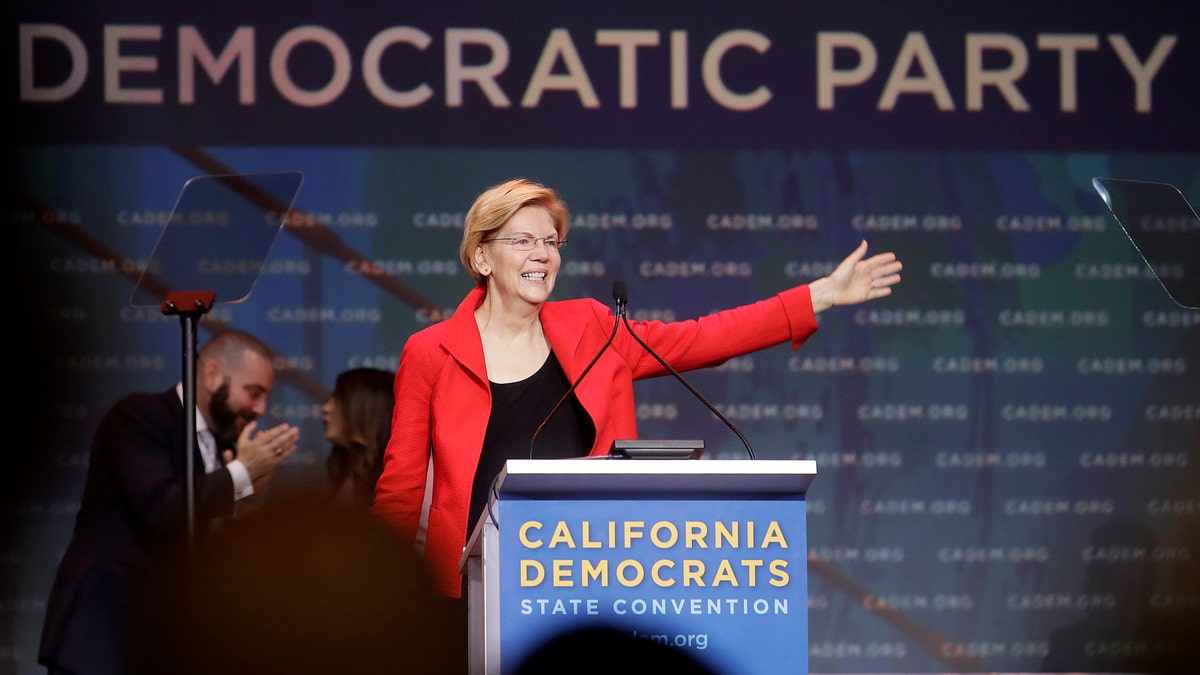
Democratic presidential candidate Sen. Elizabeth Warren, D-Mass., waves before speaking during the 2019 California Democratic Party State Organizing Convention in San Francisco, Saturday, June 1, 2019. (AP Photo/Jeff Chiu)
On Tuesday, Warren unveiled a plan to tackle climate change she dubbed the “Green Manufacturing Deal.”
Her plan would pump $2 trillion into green jobs and technology innovations in the United States. It would also eliminate the Department of Commerce and several other smaller agencies.
Warren would pay for her program with proceeds from her proposed new tax on corporate profits and by ending tax subsidies for oil and gas companies. She would also roll back some provisions of the GOP’s 2017 tax law.
The plan is part of a new series of policies Warren will continue to roll out that focus on investing in American jobs and innovation.
The plan is also meant to emphasize Warren's support for reaching the goals of the Green New Deal. Warren released a plan earlier this month on protecting public lands, which would roll back many of the president’s environmental policies, halt offshore drilling, and restore the original boundary lines for two national monuments.
Mayor Pete Buttigieg

Pete Buttigieg participates in a Fox News Town Hall event.
Mayor Pete Buttigieg supports the Green New Deal as well, but has not released his own plan. In May Buttigieg told “Fox News Sunday’s” Chris Wallace, "What the Green New Deal gets right, is it recognizes that there's also an economic opportunity. Retrofitting buildings means a huge amount of jobs for the building trades in this country.” If the U.S. cannot go carbon-free by 2030, he says he supports going net carbon-free. During a town hall on MSNBC on Monday, Buttigieg told Chris Matthews and an inquisitive eighth grader he would call for a carbon tax, building retrofits, better soil management, and a quadrupling of federal funding for energy and research development.
Washington State Gov. Jay Inslee
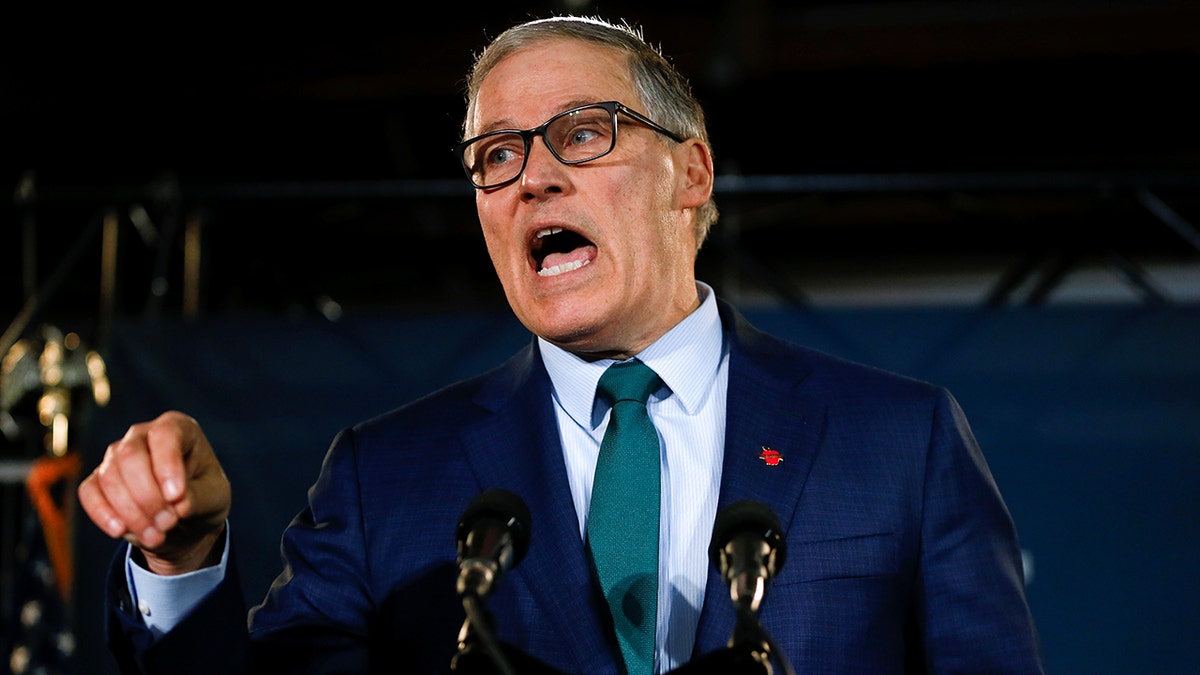
Washington state Governor Jay Inslee speaks during a news conference to announce his decision to seek the Democratic Party's nomination for president in 2020 at A&R Solar in Seattle, Washington, U.S., March 1, 2019. (Reuters)
Last month, Washington State Gov. Jay Inslee released a plan hailed by Ocasio-Cortez as the “gold standard.” It would meet, and even exceed, the Intergovernmental Panel on Climate Change targets for carbon reduction.
The “Evergreen Economy Plan” begins on day one of his administration. By 2030, it aims to reach 100 percent zero emissions from new vehicles, zero carbon pollution from all new commercial and residential buildings and would require total carbon-neutral power across the country.
By 2035, it proposes completely clean, renewable and zero-emission energy nationwide.
In his 38-page proposal, Inslee seeks to accomplish his plan’s goal through tax incentives for using clean technologies, direct government construction, federal funding of private efforts, regulatory mandates, and use of public land and cooperation with private companies.
Additionally, the plan adds more initiatives like green infrastructure and gradual de-carbonization of existing buildings. Inslee promised to raise the minimum wage and protect collective bargaining power for unions, ensure a "just transition" and jobs for workers in the fossil fuel industry, and mandate employers follow guidelines for gender pay parity.
Calling for a $9 trillion investment in green jobs over 10 years, Inslee said his plan would create eight million well-paying jobs for Americans in the transition.
"These folks who have worked in the coal industry are deserving of incredible respect and dignity," Inslee told ABC News.
"They are people whose contributions of multiple generations have literally built the economy of the United States, people who are doing really hard work, and are deserving of our respect and what we've done in the state of Washington, which is to make sure that as we go through this transition, that we also make sure we are caring for and embracing these communities to make sure they have a future as well,” he said.
Former Rep. Beto O’Rourke
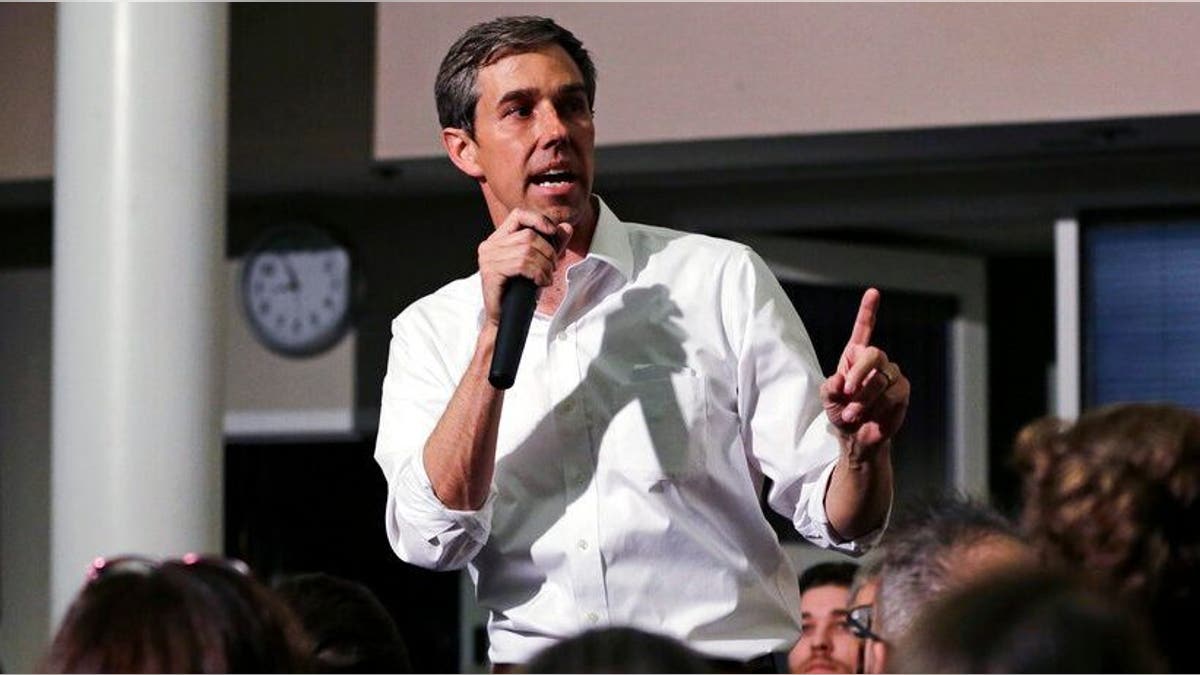
Former Texas congressman Beto O'Rourke gestures during a campaign stop at Keene State College in Keene, N.H., Tuesday, March 19, 2019. O'Rourke announced last week that he'll seek the 2020 Democratic presidential nomination. (AP Photo/Charles Krupa)
O’Rourke announced his own four-pillar plan to combat climate change just days before Governor Inslee.
The Texan’s plan labels climate change “the greatest threat we face.” He plans to invest $5 trillion over 10 years in infrastructure and innovation and set a goal to achieve net-zero emissions by 2050.
His emission reduction goal is also in line with the Green New Deal. According to the proposal, O’Rourke’s mobilization would be “directly leveraged by a fully paid-for $1.5 trillion investment” and the bill he would introduce to Congress would be funded by "changes to the tax code to ensure corporations and the wealthiest among us pay their fair share and that we finally end the tens of billions of dollars of tax breaks currently given to fossil fuel companies.”
O’Rourke also plans to re-enter the Paris agreement on his first day in office and would "set a first-ever, net-zero emissions by 2030 carbon budget for federal lands, stopping new fossil fuel leases, changing royalties to reflect climate costs, and accelerating renewables development and forestation.”
Sen. Cory Booker
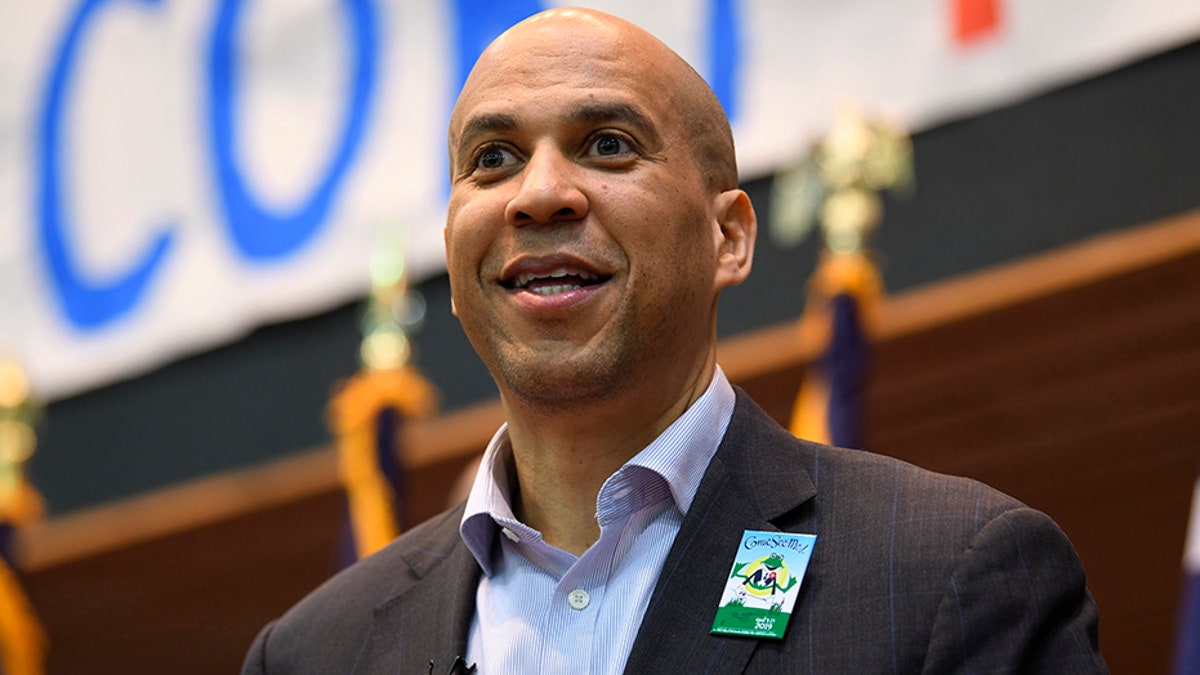
Democratic presidential candidate Sen. Cory Booker speaks during a town hall meeting in Rock Hill, S.C., on Saturday. (AP)
CLICK HERE FOR THE FOX NEWS APP
Sen. Booker has released the specifics of what he calls his “environment justice plan.” Booker says the proposal would take "immediate steps" to strengthen the power of the Environmental Protection Agency. During a campaign stop in Columbia, South Carolina, Booker told his crowd: "Right now, under this president, the number of actions that are being taken against polluters has gone dramatically down.”
